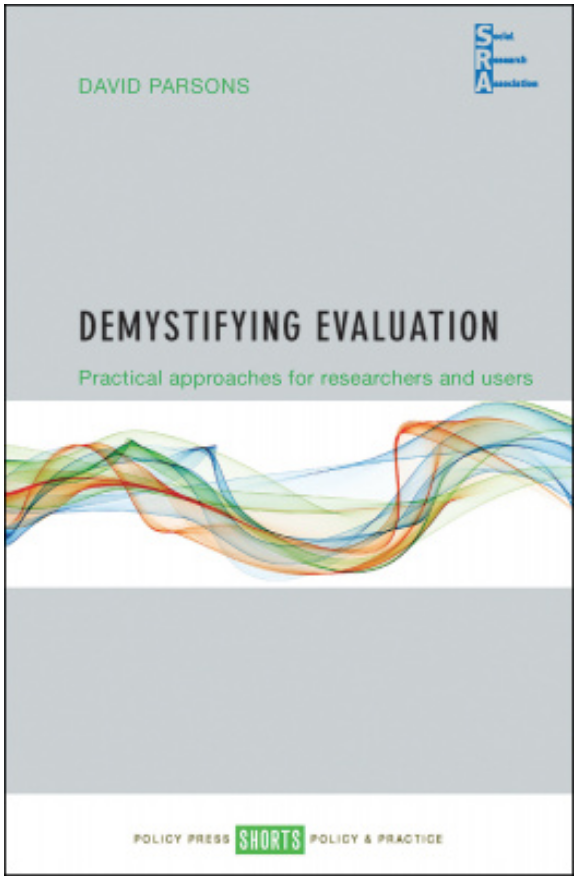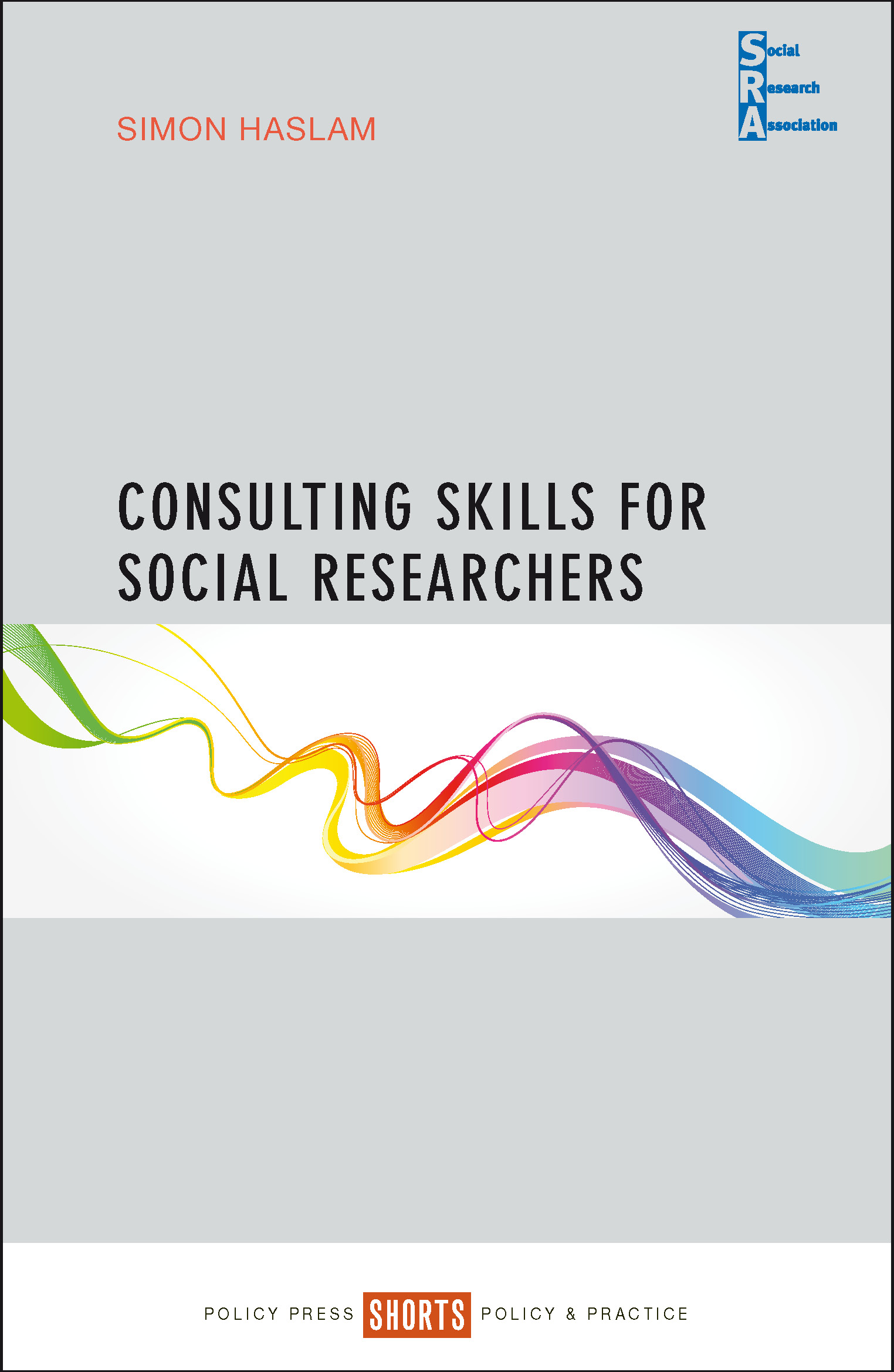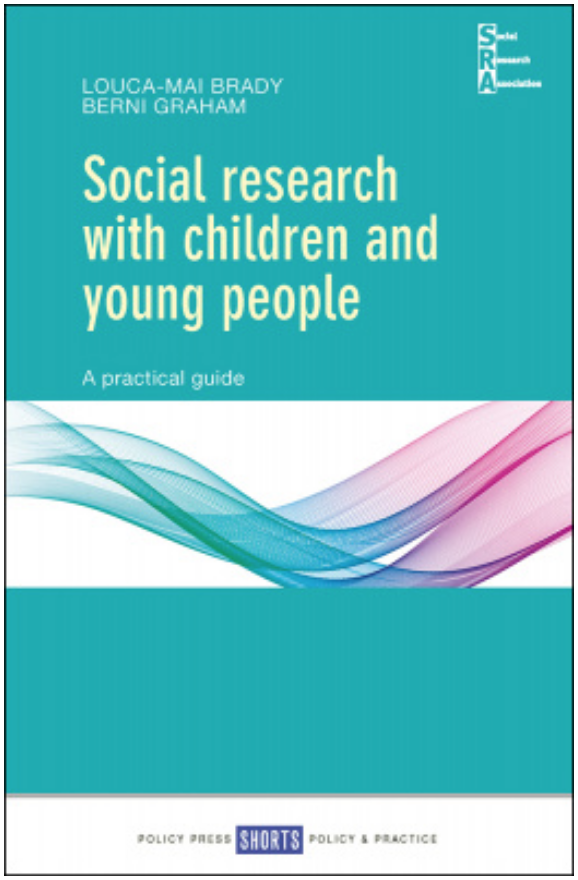 The first book in the SRA Shorts series was Demystifying Evaluation by David Parsons. He kindly answered some questions for this blog.
The first book in the SRA Shorts series was Demystifying Evaluation by David Parsons. He kindly answered some questions for this blog.
Why did you decide to write for SRA Shorts?
I had written or co-written a series of mainly methodological books in my aspirational late 20s and 30s but leaving academia my mid-career as a practising evaluator was tied up with report writing and occasional journal articles. In 2015 I started to run evaluation courses for SRA. These have been remarkably popular, showing me this was more than a methodological niche and also the widespread confusion for ‘novice’ and starter evaluators about the (many) methodological choices. So it was timely when SRA came to me later the next year to ask me to put together a proposal for a practical book on evaluation for the first series of ‘Shorts’. It was also an opportunity to lift my head above ‘doing’ and teaching, to make a small contribution at the level so many people seem to need.
How was the experience of writing your book?
There were a few publisher hoops to jump through to make the business case for a book on Demystifying Evaluation: who was it aimed at, what gaps would it fill, and a timetable to put together. Subsequently, the book fell easily onto the laptop. Content was never a problem but getting the right balance between unpicking some of the theory and jargon, and keeping it practically-centred, was a constant challenge. In the end it took less than six months to put it together, with editing was the biggest challenge to keep it up to its series name – short!
What advice would you give to new SRA Shorts authors?
Go for it. Use your practice and any training experience. For me the discussions at Q&A sessions from my SRA courses were both a motivator and a guide to keeping the content focussed on practice. Set yourself a realistic timetable, not too aspirational, and give yourself as much time to edit it as to write the first draft. Get a picture of your typical reader and keep them in mind, and to avoid it all dating too fast also keep an eye on the horizon for how are things changing in the approach and use of social research. And remember to enjoy the journey.
 The second book in the series was Consulting Skills for Social Researchers by Simon Haslam, also published in 2017. We also asked Simon about his experience.
The second book in the series was Consulting Skills for Social Researchers by Simon Haslam, also published in 2017. We also asked Simon about his experience.
Why did you decide to write for SRA Shorts?
I run the Consulting Skills for Social Researchers training course for the SRA. When the opportunity to write an SRA Short came along I saw it as a way to add value to the training course (the book of the course) and also a way to be able to share the ideas we cover on the training course to a wider audience.
How was the experience of writing your book?
For the most part good. It was the first book I'd written, so there was an element of new ground for me which meant I made quite a slow start. But once going it was an enjoyable process with good support from Policy Press.
What advice would you give to new SRA Shorts authors?
First, be very clear on what you are wanting to say in your SRA Short and acknowledge those that have already brought insight into this area, so your text fits in with and builds on what people might also read. Second, spend the time working on the structure of your SRA Short - each chapter, each section, each sub-section etc. I found this useful, and once this was in place it was relatively easy to add the content. I've used this approach in my other book projects since. Third, when your manuscript is nearing completion, seek the help of an eagle-eyed friend. Ask someone who is an experienced writer and has the eye/patience for detail to critique what you've written. You'll have some editorial support from Policy Press who publish the SRA Shorts but you can only enhance your final product by this additional step in the editorial process. Again, this is an approach I've now adopted on other major writing projects.
 The third book in the series is Social Research with Children and Young People by Louca-Mai Brady and Berni Graham. They were also willing to share their experience.
The third book in the series is Social Research with Children and Young People by Louca-Mai Brady and Berni Graham. They were also willing to share their experience.
Why did you decide to write for SRA Shorts?
The idea arose when Louca-Mai was asked, after reviewing a book for the Policy Press, if she had any of her own ideas for possible books. For many years, participants on our training courses have expressed a desire for a resource which would reinforce our course, and provide key ethical and methodological considerations around research projects and involving children and young people in research. The SRA Shorts series provided the ideal format.
How was the experience of writing your book?
It was hard to get the interconnected issues down coherently, while avoiding overlap or sounding didactic. The Policy Press editorial team were really supportive throughout, gave clear guidance and made the process as easy as possible. Ultimately it was very rewarding to see our ideas in print!
What advice would you give to new SRA Shorts authors?
- Identify a ‘gap in the market’ for a short, focused, guide to a social research issue or guidance to improve practice and/or quality.
- Keep your audience in mind.
- Even a short book takes more time than you think – detailed planning really helps to keep it manageable and focused.
- Don’t expect to make much money.
The commissioning editor for the series at Policy Press, is Philippa Grand. She says: “We are actively commissioning titles for this series. If you have an idea you would like to discuss or a proposal you would like to submit, please contact me at [email protected].” More information about the series can be found here.